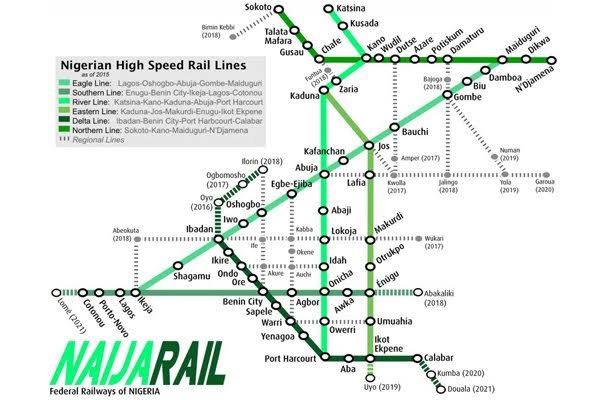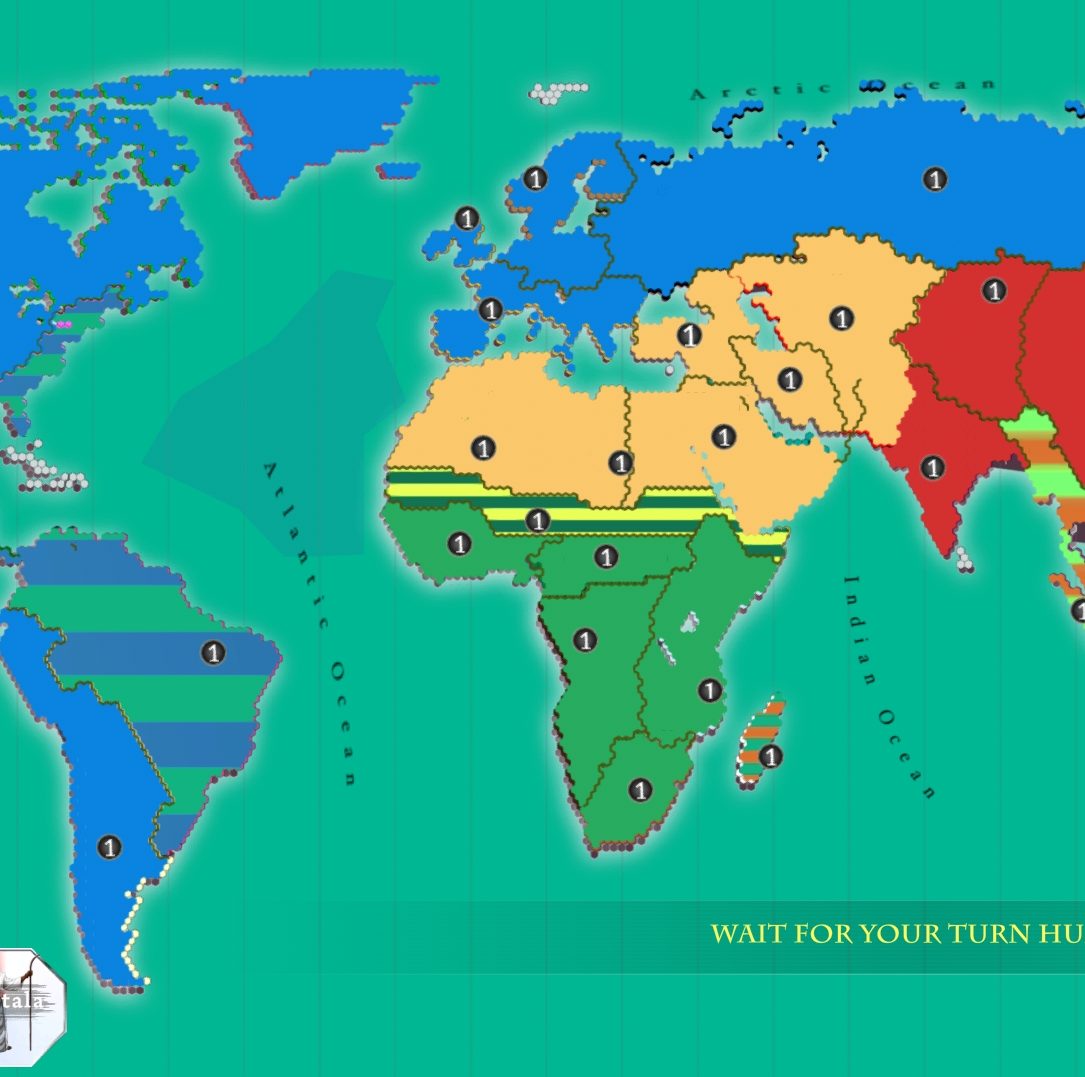Prince Justice Faloye
It’s obvious that Ignorance competes with corruption in our arrested development since all major presidential candidates and the intelligentsia supported subsidies removal and floating the Naira that have turned out to be an economic disaster, because they overlooked the fact that every advanced industrialized economy was built on and continue to be stimulated with production and consumption subsidies. This reaffirms my November 22 2022 article “2023: Neocolonial administrators or Economic revolutionaries” that the political class were just neocolonial administrators that couldn’t uplift the masses from poverty.
The coloniality of knowledge sources mentally enslaves and robs them of knowledge of how to industrialize and economically advance our people out of poverty. Railways complex is the launchpad of industrialization, but stuck in the slave plantation mentality since independence, every regime promises advancing agriculture by returning unemployed to the farms to solve our poverty. They overlook that our urban population is 53.52% of Nigeria’s population and the unemployment rates were not much different, 23.9% in rural and 21.2% in urban areas in 2018.

From the 1960s Marketing boards to 1970s Operation Feed The Nation to Eighties Green Revolution and all agriculture programs till date, agriculture should be facing diminishing returns by now. According to the World Bank, Nigeria has the world’s fifth highest Agricultural Value Added at $111.97 billion, following Brazil ($130.82b), Indonesia ($163.56b), India ($571.63) topped by China ($1311.31b). Agriculture accounts for 38% of our employment and 24% of our national income compared to the mere 1.6% combined income of Iron and Steel, Plastic and Rubber, Electrical and Electronics that a railways led industrialization can multiply tenfold to reduce both urban and rural unemployment and poverty issues.
From a comparative analysis of progressive nations and their sectoral contributions to GDP, it shows Nigeria agriculture has an unhealthy high percentage of GDP with agric 21.2% industrial 22.5% service 56.4% compared to Brazil (Agric 6.6% industrial 20.7% services 72.7%): India (agric 15.4% industrial 23% service 70.9%) South Africa (agric 2.8% industrial 29.7% service 67.5%) Egypt (agric 11.7% industrial 34.3% service 54%) China (agric 7.9%, industrial 40.5% service 51.6%) : USA agric 0.9% industrial 19.1% service 80% EU (agric 1.6% industrial 25.1% service 70.9%): UK (agric 0.7% industrial 20.2% service 79.2%) Mexico (agric 3.6% industrial 31.9% service 64.5%) – all with agriculture being mere fractions of industry and service.

A structural analysis of the Nigerian economy reveals why we have high levels of unemployment and poverty. In 2022, the services sector accounted for 47.45% of total employment while it accounted for 54.8% of the rebased GDP, with the largest subsector contributors being wholesale and retail trade contributing 16.27%, Information and Communication 11.04% and Real Estate 8.37%. The largest contributor, Retail and Wholesale has low wages and even lower employment and income multiplier effects across the economy since 95% is conducted by the informal sector. Information and Communication has grown with telephone and data companies, which have had multiplier effects in online trading and transport services.
In advancing economies, their service sectors growth leaders are the productive subsectors of transport, information and communication, and business services, and also have higher contributions from government – health and education. Despite the Chinese economy much touted manufacturing, in 1978 at the beginning of its economic growth agriculture sector accounted for 27.7%, manufacturing 47.7% and services 24.6% of GDP, compared to 2017 with agriculture 7.9% manufacturing 40.5% and services 51.6%, showing a significant change in its services sector from 24.6% to 51.6% due to massive investment in transport services (railways), as well as logistics, warehousing and other services. Initially like Nigeria with a retail trade based on agriculture and imports, with lower wages, and low income and employment multiplier effects, increased Chinese manufacturing and transport services increased retail profit margins.



When you examine our productive sectors such as manufacturing, only 3 subsectors (food & beverage, cement and textile) account for 77% of manufacturing output. The food, beverages and tobacco are light processing industries that gave our agriculture value added a global high ranking, but the subsector has ten times lower the income and multiplier effects of railways. It is railways that can increase the 1.6% combined income of Iron and Steel, Plastic and Rubber, Electrical and Electronics subsectors of manufacturing. While foods have only a few byproducts, a car has minimum of 30,000 parts while a A380 Airbus plane has 3.8 million parts which are all sources of income and employment for the potential local suppliers.
This is not an attempt to diminish the significance of agriculture, but to show that there are better returns on social investment in railways, and even examine what could be done more to agriculture if anything. Our agriculture is made up of 91% of agriculture crop production, leaving just 9% for fishery, forestry and livestock. So additional investment into agriculture should be concentrated on fishery and livestock till they achieve the global average of 40% of agriculture production. Livestock and fishery must be elevated from cultural pursuits of Afro-Arabic herdsmen and waterside fishermen to modern business models with global best practices.


The modern agricultural sector is capital and technology intensive that can only be efficiently spurred by big business that can buy heavy machinery and fund research. Currently, our agriculture is like our transportation, handled by low income investors for sustenance. It is not only inefficient but dangerous since like Okada and Danfo drivers that are unregulated and could be used to commit crimes, peasant farmers could be used to sabotage our food security since they might take wrong genetically modified seeds unknowingly. We can no longer entrust our food and transport to uneducated poor citizens.
The psuedo elites that clamour for people to be returned to the farms don’t advocate such for their children, and one wonders even if the rural conditions for farming are improved to Western levels whether it would attract the youth, otherwise why do the Nigerian youth that travel abroad stick to city jobs instead of agriculture in USA, Canada or UK? Rather than focusing on pumping more resources into peasant agriculture, the government should provide better incentives through direct and indirect subsidies for big businesses coming into agriculture to increase productivity and reduce production cost per unit.


The real income and employment growth driver that can solve Nigeria’s income and employment problems is railway that will improve transportation services contribution, as well as its multiplier effects in logistics, freighting, distribution, which in turn improve agriculture and especially manufacturing subsectors of Iron and Steel, Plastic and Rubber, Electrical and Electronics, providing millions of jobs as manufacturing and the entire economy diversifies.
Three East-West mainlines (Lagos-Calabar, Ilorin-Yola and Sokoto-Maiduguri) to compliment the two North-South colonial lines will spark a railway boom by states and private sector that will increase income and employment in both urban and rural areas. Unfortunately the APC government sabotaged the $13b Lagos-Calabar railway line that was to be financed and built by the Chinese. Acting on Western Powers command they cancelled the project commissioned by President Jonathan and gave it to GE USA that neither had the financial nor technical capabilities, then afterwards went begging to Russia unsuccessfully. The latest news is that a haphazard part of the railway was allocated to government cronies without any technical expertise and with a laughable share capital of a mere $1,000 to build a $6 billion project.
https://www.vanguardngr.com/2024/03/misguided-elites-arrest-our-economic-development-with-wrong-focus/








